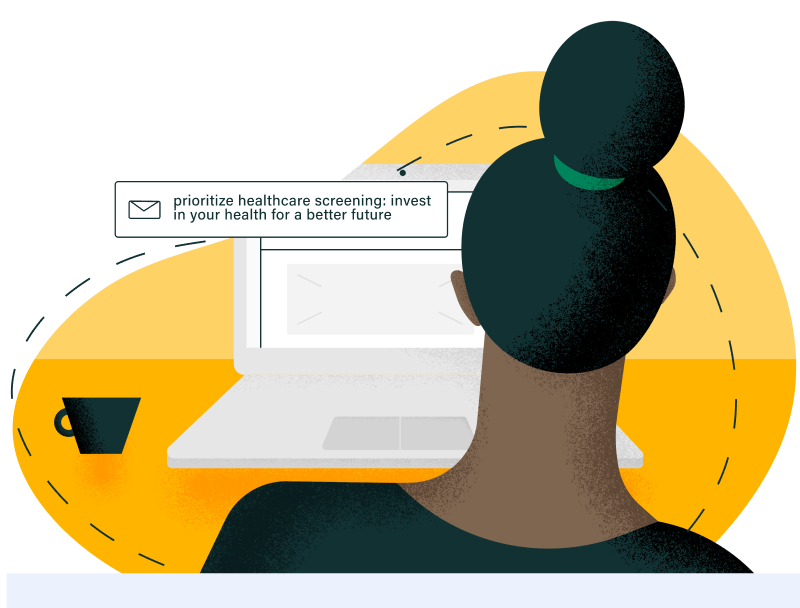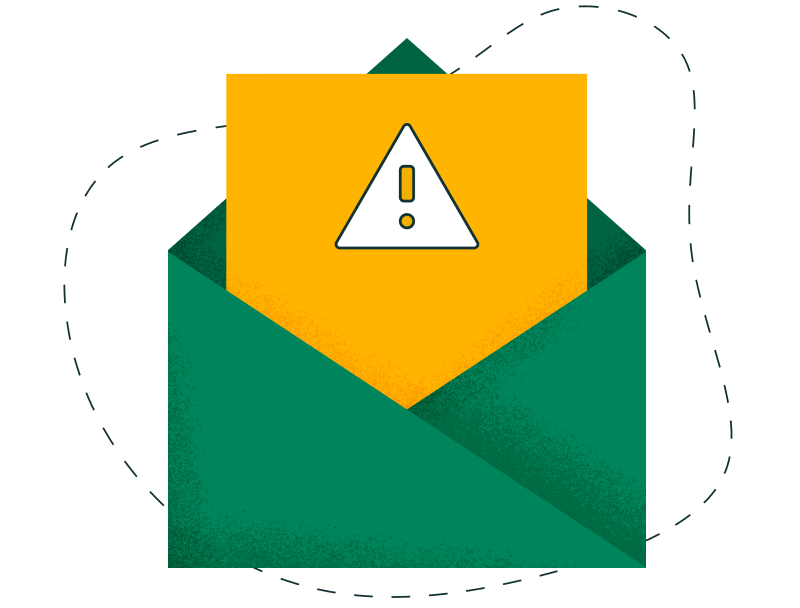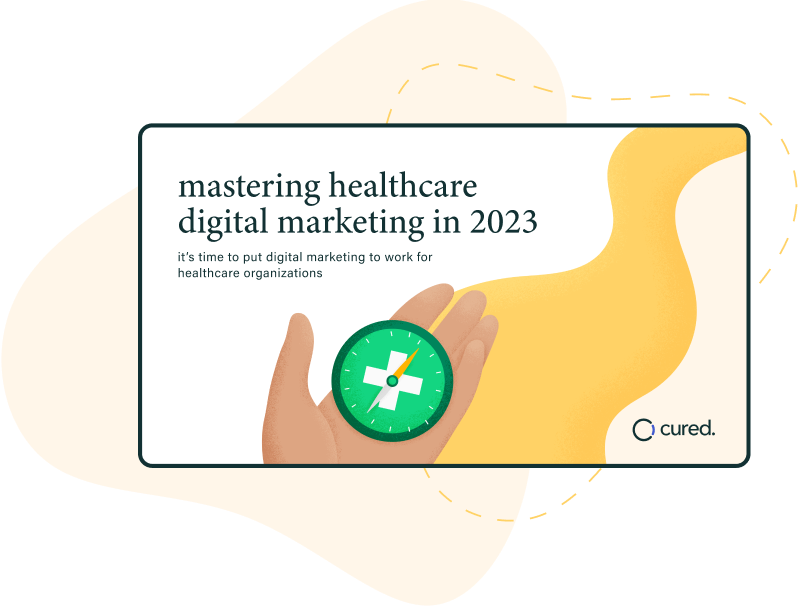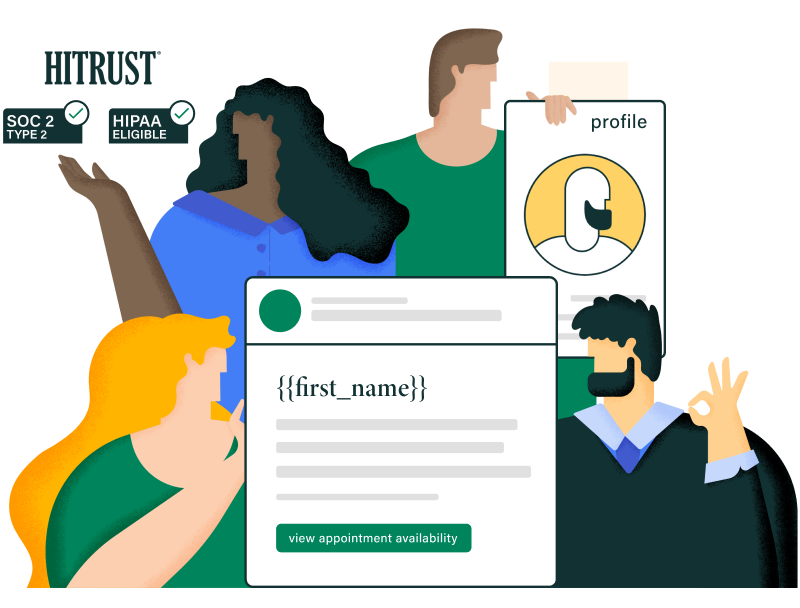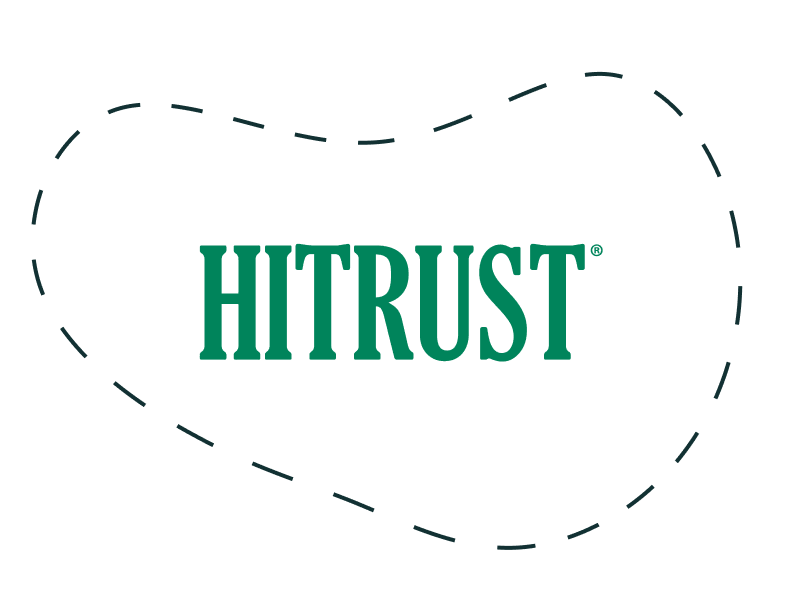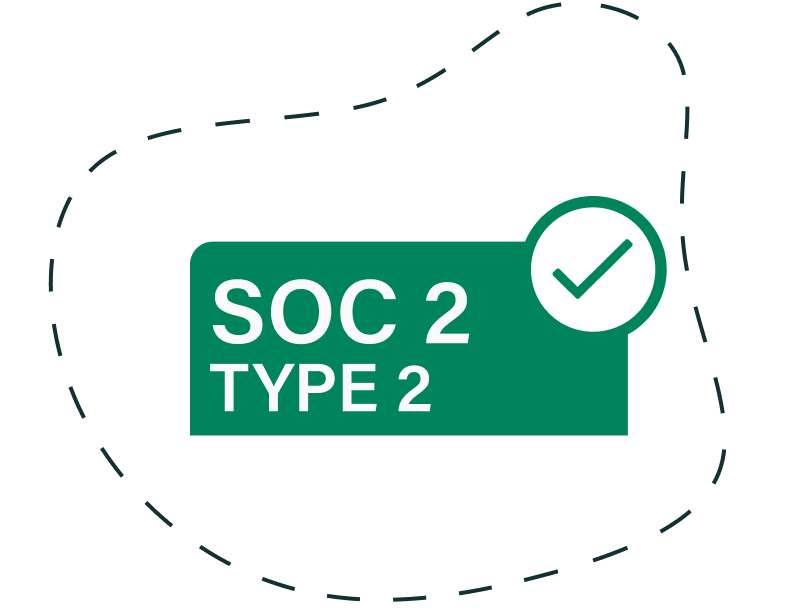hipaa-compliant email marketing
get startedwhy is HIPAA-compliant email marketing important?
modern PHI protection
Picture this: A patient, Sarah, seeks medical advice online, navigating a maze of websites and resources to find answers to her health concerns. Eager to stay informed, she willingly shares her email address for updates and insights. Behind the scenes, a pivotal challenge arises: safeguarding the confidentiality of Sarah’s patient health information (PHI).
HIPAA, the Health Insurance Portability and Accountability Act, isn't just an acronym. It's a comprehensive framework designed to protect sensitive health data. Maintaining rigorous security standards is more important than ever as patients look to digital channels, specifically email and SMS, for healthcare communications. Ensuring that Sarah’s data is protected is imperative to safeguarding the relationship with her healthcare organization and maintaining trust. As a healthcare marketer, the goal of keeping Sarah’s data safe makes HIPAA-compliant email marketing an essential and non-negotiable.

what is HIPAA
HIPAA is a federal law establishing nationwide standards for safeguarding PHI. PHI encompasses sensitive patient data, and HIPAA ensures that this information remains confidential, prohibiting its disclosure without patient consent. The law applies to various entities, including health plans, healthcare clearinghouses, and specific healthcare providers engaged in electronic transactions.
HIPAA consists of two pivotal components: the Privacy Rule and the Security Rule. The Privacy Rule addresses PHI's permitted use and disclosure by “covered entities,” such as healthcare provider organizations. It affords individuals specific rights over their PHI and upholds their privacy rights. The Security Rule mandates rigorous standards to safeguard electronic PHI (ePHI), obligating covered entities to implement administrative, physical, and technical safeguards to maintain security. Confusingly, there is no federal certification that constitutes “HIPAA Certification.” Many regulations control your use of PHI, which allows you to adhere to HIPAA privacy rules safely.
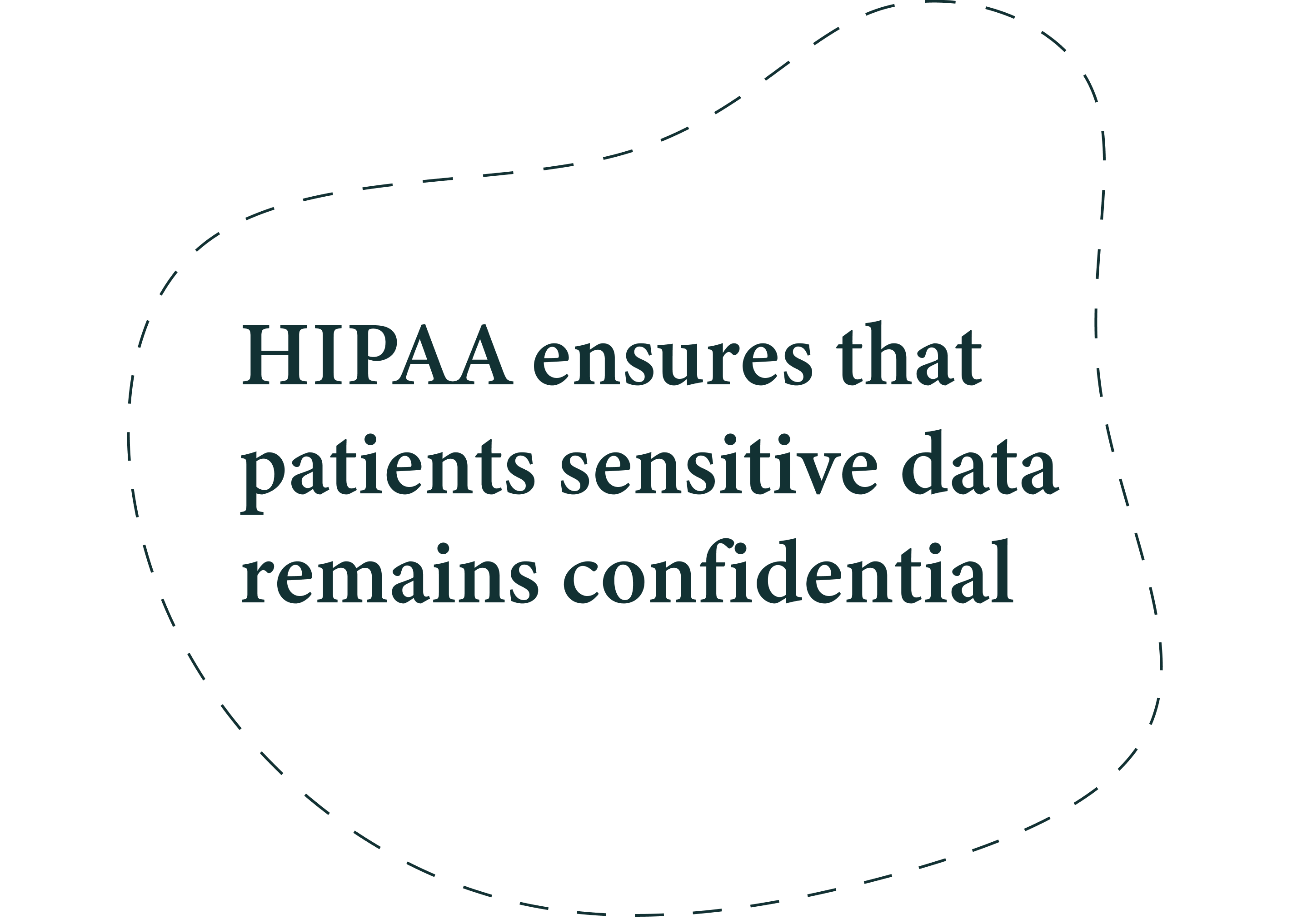
what is PHI
PHI encompasses a broad spectrum of data that demands safeguarding across various electronic, paper, and oral platforms. PHI comprises any patient-identifiable information utilized or disclosed during the provision of care, not only medical records and test results. This umbrella term extends beyond revealing medical history and encompasses any identifying data about a patient's health.
Think of PHI as the personal health information equivalent to personally identifiable information (PII), binding an individual's unique identification with their health-related data. By adeptly managing patients' and members' PHI, your organization gains the ability to tailor engagements, delivering targeted and personalized care journeys. Since this dataset holds immense value, constituting a direct link to patient needs, protecting PHI is vital. ePHI is another term synonymous with PHI, specifically used when discussing HIPAA-compliant email.

benefits of embracing compliance
Embracing compliance in your digital marketing efforts is the only way to build trust throughout the patient journey and grow a loyal patient population. It’s essential to understand the metrics for proper HIPAA compliance. For example, many organizations will advertise “HIPAA compliance” because they are willing to sign a Business Associates Agreement (BAA). However, while a BAA ensures that the organization you are trusting with your data will be liable, given a breach occurs, it doesn’t guarantee that data is safe. To feel confident that a breach will not happen in the first place, you must go with an email service provider (ESP) with proper security protocols and encryption built into the platform and will sign a BAA. Keep your patients returning and build a reputation of trustworthiness by being confident the correct protocols are in place to secure your patients' data.
what makes email marketing HIPAA compliant?
Establishing clear PHI guidelines encompassing information inclusion, protection protocols, and acceptable data utilization ensures that your organization optimally protects patients’ data and mitigates the risk of penalties. As highlighted by the HIPAA Journal, achieving HIPAA compliance for email mandates covered entities and business associates to institute access controls, audit controls, integrity controls, ID authentication, and transmission security mechanisms to:
- restrict access to PHI
- ensure 100% message accountability
- monitor how PHI is communicated
- ensure the integrity of PHI at rest
- protect PHI from unauthorized access during transit
Encrypting emails end-to-end allows you to preserve the confidentiality of PHI, which is vital to ensure they are unreadable by anyone or any technology that may intercept them. To ensure proper email compliance, you must use a solution that encrypts all your PHI at rest and takes all available precautions to protect it while in transit. In the world of email, that means it must be encrypted end-to-end because encryption is a widely available security measure.
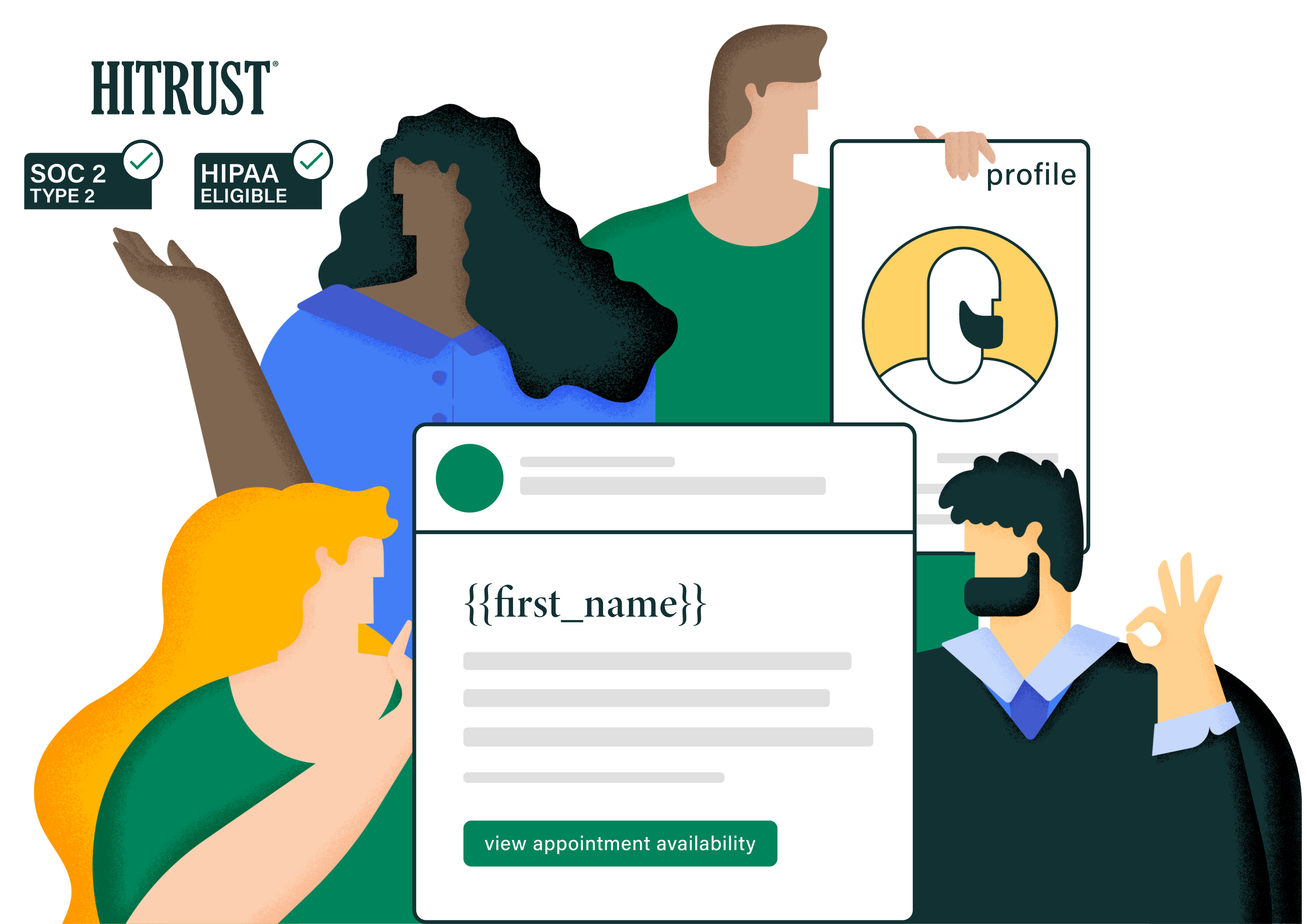
We take compliance seriously at Cured and have committed to achieving the highest security standards possible. We are proud to be a HITRUST-certified vendor, which is currently the most stringent healthcare certification available. We have also received SOC 2 Type 1 and 2 certifications, all a testament to our dedication to protecting PHI above all else. Read more about our platform security and certifications here.
HITRUST
HIPAA describes compliance standards, while the Health Information Trust Alliance (HITRUST) is a workable framework and organization that helps you achieve compliance. At Cured, we follow the highest standards and ensure we are HITRUST-compliant and HIPAA-eligible.
Several vendors claim HIPAA eligibility. However, it is important to note no single third party verifies HIPAA compliance. Companies self-identify HIPAA eligibility, meaning you must take their word for it. Their ability to sign a Business Associate’s Agreement with you does not necessarily mean they allow you to store, manage, or use PHI in their platforms. HITRUST certification allows Cured to confidently store PHI and enable our customers to use it appropriately for their needs.
SOC 1 Type 1 & 2
SOC 1 Type 1 and Type 2 certifications are pivotal benchmarks of an organization's internal controls and processes, specifically related to financial reporting. These certifications are established by the American Institute of CPAs (AICPA) and focus on Service Organization Control (SOC) reports, ensuring the effectiveness and reliability of an organization's controls that impact the financial statements of its clients.
SOC 2 Type 1 & 2
The SOC 2 Type 2 report focuses on internal controls designed to meet service commitments and system requirements based on the Security and Privacy criteria established by the American Institute of Certified Public Accountants (AICPA). This framework ensures businesses are exercising best practices for maintaining data security. While SOC 2 Type 1 evaluates Cured’s security at a point in time on a single day, SOC 2 Type 2 audits that Cured is following its stated security practices and rigorous standards on an ongoing basis.
key elements of HIPAA-compliant email marketing
HIPAA-compliant email marketing rests upon a foundation of essential components that collectively ensure communication security, privacy, and effectiveness.

encryption
Encryption is a cornerstone for HIPAA-compliant email marketing, where sensitive data within emails is encoded, safeguarding it from unauthorized access. With encryption protocols like Transport Layer Security (TLS) and end-to-end encryption, Cured erects an additional protective layer, allowing only intended recipients to access the content. This meets regulatory requirements and cultivates trust among recipients who entrust their personal information to your communications.
server security
Secure servers also play a pivotal role in HIPAA-compliant email marketing. Emails must be sent and stored on servers with stringent security measures in place. Consent management for your patient population is also vital to protect your send reputation. By incorporating transparent opt-in mechanisms, seamless opt-out procedures, and clear data usage disclosures, Cured respects your patients’ user preferences and establishes an atmosphere of transparency.
user authentication
User authentication ensures that only authorized individuals can access and alter email marketing systems. Requiring users to provide multi-factor authentication (MFA) limits access to the Cured platform and any PHI used for campaign personalization. This adds an extra layer of security that protects the reputation of your healthcare organization and builds long-term trust with your patient population.
best practices for HIPAA-compliant email campaigns
It’s vital to adhere to best practices to establish HIPAA-compliant email campaigns that drive conversion and retention in your patient base. Cured has an extensive library of insights, tips, and trends for driving unmatched engagement and ROI with your HIPAA-compliant email marketing.
discover cured’s library of best practices
crafting effective HIPAA-compliant email campaigns
when writing HIPAA-compliant emails, it’s important to balance adhering to regulations and driving engagement
1. segmentaion
Before compiling a HIPAA-compliant email's content, you must reach the right audience. Organizing your patient population into segments is important in order to reach the right patient with the right message. To eliminate the guesswork in defining audiences, the Cured platform offers propensity models that leverage machine learning to predict each person’s propensity to consume care in a specific service line or to convert from a prospect into a patient. Breaking down your prospects into different segments based on perceived or actual service interest is vital in driving engagement with your campaigns.
2. subject lines
Subject lines are the first piece of a HIPAA-compliant email to get evaluated. In a split second, a patient quickly scans a subject line and decides to open or delete an email. It’s important to note that HIPAA regulations do not permit PHI in the subject line, including a patient's first name. If you plan on using personalization in your email, include it in the body of the email, not the subject line. The Cured platform includes an AI-powered subject line curator, which uses email copy to produce five optimized subject line options. The generated subject lines adhere to HIPAA regulations, avoid spam risks, and drive 32% higher open rates than handwritten ones.
3. body
The body of a HIPAA-compliant email is where you can include ePHI to personalize content. Adding a first name or location can go a long way in building a better relationship with your patients. Of course, this is only an option if your email platform is fully encrypted to ensure no ePHI ends in the wrong hands. Ensure everything within your email is CAN-SPAM compliant to avoid being sent to a spam folder. It’s always a good idea to run through a pre-send checklist to ensure you include all the necessary email pieces to drive conversion and remain compliant.
4. CTAs
When compiling an effective HIPAA-compliant email, including powerful call-to-actions (CTAs) throughout is vital. Use strong verbs and language that encourage patients to take action, whether scheduling an appointment, signing up for a newsletter, or exploring educational resources. To stay compliant, CTAs should only lead patients to secured forms that collect PHI with proper encryption. CTAs are also an excellent time to tie in personalization to show patients you understand and care about their unique patient journey and can provide relevant solutions.
the risk of not being HIPAA compliant
Healthcare security breaches continue to expose PHI at record rates. According to Fierce Health, from 2021 to 2022, the total number of patients impacted by a breach went up 32%.
Ignoring proper PHI protections puts your organization and your patients at extreme risk. Not to mention, HIPAA violations come with stiff penalties. According to the U.S. Department of Health and Human Services, civil and criminal penalties can be enforced. Breaches come with significant fines, ranging from $10,000 to $50,000. Atop this, your organization's reputation is jeopardized, and patients will likely look elsewhere for a trusted healthcare provider.
Another important note, many organizations claim HIPAA eligibility, but only because they’re willing to sign a BAA. However, no single third party verifies HIPAA compliance. When a company self-identifies as HIPAA eligible, it means you must take their word for it. Their ability to sign a Business Associate’s Agreement with you does not necessarily mean they allow you to store, manage, or use PHI in their platforms.
Paying close attention to your and your vendor’s HIPAA stance will allow you to use digital marketing strategies to reach patients in their preferred communication channels. By leveraging HITRUST certification, the Cured platform enforces the most stringent protections for all sensitive data to ensure that identifiable information is not breached. Our healthcare-specific platform protects you and your customers while enabling you to build meaningful, lifelong patient-provider relationships.
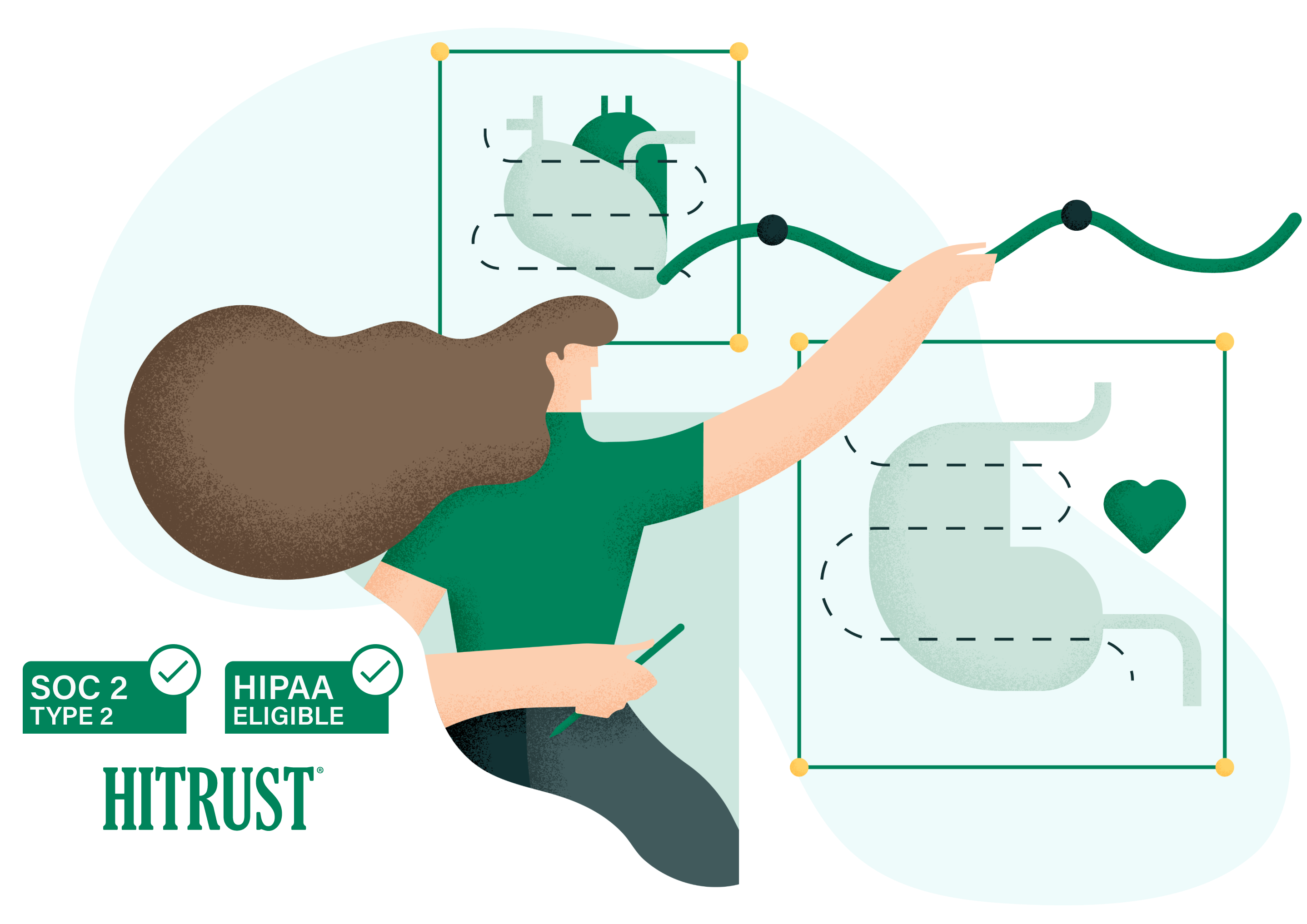
let’s bring healthcare full circle, together


